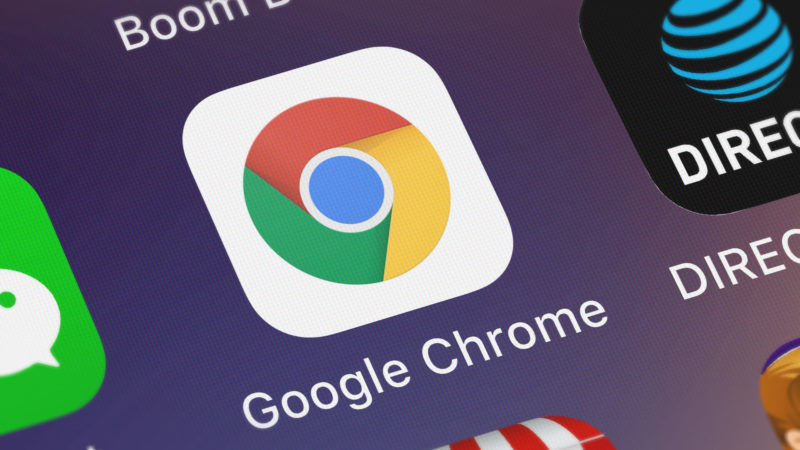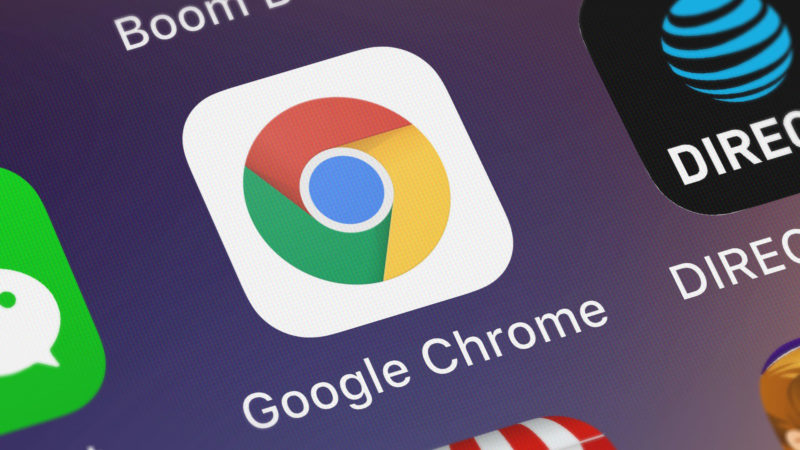
Following its antitrust victory in the lawsuit against Google, the U.S. Department of Justice is aiming to fundamentally reshape the company’s digital dominance by asking the judge to force the sale of the Chrome browser and restructure its market approach.
Chrome controls 66.68% global browser market share and Google receives billions of dollars from Apple for default search status.
Google called this a “wildly overboard proposal” in a blog post, arguing the proposal would:
- Compromise product quality.
- Endanger user privacy.
- Chill AI innovation.
- Harm American tech leadership.
Google is positioning itself as a defender of innovation and consumer experience against government intervention. The announcement has sparked reactions within the advertising industry.
Dig deeper: Why Google lost -The DoJ’s case in 11 slides
Advertiser perspectives
Navah Hopkins, brand evangelist of Optmyzr kicked off a conversation on LinkedIn. She noted Chrome’s search engine market share but then went on to share her views on the risk of information sharing, manipulation, and anyone else having the infrastructure that Chrome would need:
- The DOJ are “setting up the US to be exactly like China with censorship if they move forward with this split.”
- “Anyone who would purchase Chrome would get easy access to the majority of minds.”
- “If the browser suddenly played favorites with processing power or UI choices, there is a real risk content that isn’t flattering to the owner will be pushed down, while content that may or may not be accurate is given preferential treatment because it’s positive.”
- “If bad actors manipulate Chrome in such a way that only approved content renders fast enough to be consumed (if at all), there’s real risk there.”
- “Aside from the existing tech giants, there really isn’t anyone large enough to come up with the multi-billion dollars (if not more) needed to acquire Chrome. Should the government step in and seize it as a public utility, that puts us in a China adjacent environment.”
- “Regardless of what happens to Chrome, there are other solutions out there. Whether we look to the rising trends in AI search, app-first experiences, or other browsers, there are paths for us to ensure our access to information isn’t blocked by bad actors. We all just need to be aware of how information gets to us and what (if any) biases exist in the information.”
There was a healthy response to these concerns. Some were worried about the negative outcome, some were just speculative and others were pragmatic, worrying about financial sustainability.
Concern about potential negative outcomes
Craig Graham, Google strategist, is worried about market fragmentation and predicts potential reliance on selling user data:
- “The potential fragmentation of Google’s assets worry me as an advertiser. More fragmentation will lead to a more challenging advertising environment with fewer signals to push/pull us in positive directions.”
- “And in terms of who is even in a position to buy Chrome besides the US government, wouldn’t it just be another tech giant that would fill that void? I can’t imagine who else would have the capital or the know-how outside of Silicon Valley.”
Robert Brady, digital marketing specialist, is skeptical about Chrome’s future revenue model, and the unethical means it would need to gain earnings:
- “First, how will Chrome earn revenue? Most likely through selling user data, which brings us to our second issue. Many governments are pushing privacy restrictions that limit user data collection.”
- “So the DOJ would be forcing Chrome out on it’s own with a pocket full of rapidly deteriorating assets and likely restrict Google from doing business with them. Sounds like a gift to Firefox and Edge.”
Kirk Williams, founder of PPC agency Zato, recognises the negative effect Government can have in the industry:
- “Government can slow down innovation / make things unnecessarily complex / expensive when it gets involved, so it’s unfortunate that the market hasn’t corrected itself enough for the government to pay attention, especially since the U.S. government tends to be very slow when it comes to anti-trust cases. I.e., if the U..S calls you a monopoly, the rest of the world has called you that for years already.”
- “So overall, I don’t really think gov involvement here would do what it is supposed to do, but I also understand why at this point the gov is like “look someone’s gotta do something.”
Speculative/thoughtful perspectives
Jared Silverman, senior director of paid search, is curious about potential competition impacts:
- “I’m more curious about how this could impact things like competition or user experience—whether it opens doors for smaller players or just shifts the dynamics.
- “It’s hard to imagine smaller players being in a position to acquire something this massive even if a coalition or consortium formed. If not them, it makes me wonder—would it just lead to another big tech player stepping in and maintaining the status quo?
- “If that’s the case is the DOJ really resolving the underlying issue? Or is this just a cosmetic win targeted at a well publicized win with Google?”
David Mihm, search behavior analyst, feels overarching regulations need a lot more work:
- “Firefox has made it mostly fine so far until recently (and arguably would have done better if it didn’t have to compete with Chrome) by selling search distribution deals (yes, ironically, to Google).”
- “But imagine a world in which Bing, OpenAI, Google, and potentially Apple are all competing for default search engine status on the #1 browser?”
- “These are reasonable arguments, but in my mind, they highlight the need for bigger-picture regulation here in the United States, mirroring the EU’s DMA, and don’t justify NOT forcing Google to divest Chrome.”
Broader concerns about information access
Nicholas Putz, fractional CMO, is worried about potential bias and manipulation of search results:
- “In a world increasingly reliant on digital information, a dominant browser could become a gatekeeper, shaping public perception and discourse.
- “It’s also important to remember the potential impact on innovation. A forced sale could stifle Google’s ability to invest in and develop Chrome, potentially hindering progress in web browsing technology.
- “While alternative solutions exist, Chrome’s widespread use makes this a critical issue with far-reaching implications especially as it pertains to bias, speeds, and censorship akin to China.
- “This situation underscores the need for continued vigilance and a commitment to an open and accessible internet.”
Pragmatic outlook
Harrison Jack Hepp, PPC strategist, questions Chrome’s ability to generate revenue independently:
- “My question is if Chrome can even continue to exist in the same way it does currently without being subsidized by the behemoth that is Google Search.
- “How does it even begin to generate the revenue needed to make it a worthwhile investment for someone or to exist on its own.”
Julie Bacchini, president and founder, Neptune Moon, doesn’t think there is need for concern yet as several aspects of the case could change:
- “So this is just a proposed remedy from the Department of Justice. It has not been ordered by the judge, only presented to the judge. Ruling on this matter will not happen until spring. And by that time, the DOJ will be run by someone else, so all of this could radically change by then.
- That being said, even if this was the decision handed down by the judge, it would be appealed and that would take years to get sorted out. So, none of this will happen any time soon, if it ever does.
Dig deeper. How a Google breakup could change the PPC industry
More quotes of note
Wired spoke to several key executives about the case:
- Guillermo Rauch (Vercel CEO): Google is “monopolizing this very important piece of software infrastructure”. As the leader of a company that makes tools for websites that rely on traffic from Google, he wants to see Chrome’s leadership taken from Google. He believes Google is “stacking every advantage they can by monopolizing this important software.”
- Gabriel Weinberg (DuckDuckGo): Remedies would “free the search market.”
- Kent Walker (Google): Proposals are “staggering” and “extreme.”
Why we care. Obviously, if the court agrees to the Department’s proposal, the consequences will be significant. Judge Amit Mehta must decide on potential remedies by August, but don’t hold your breath, there is a potential years-long appeals process.
The post DOJ pushing the sale of Chrome sparks industry debate over web’s future appeared first on MarTech.





